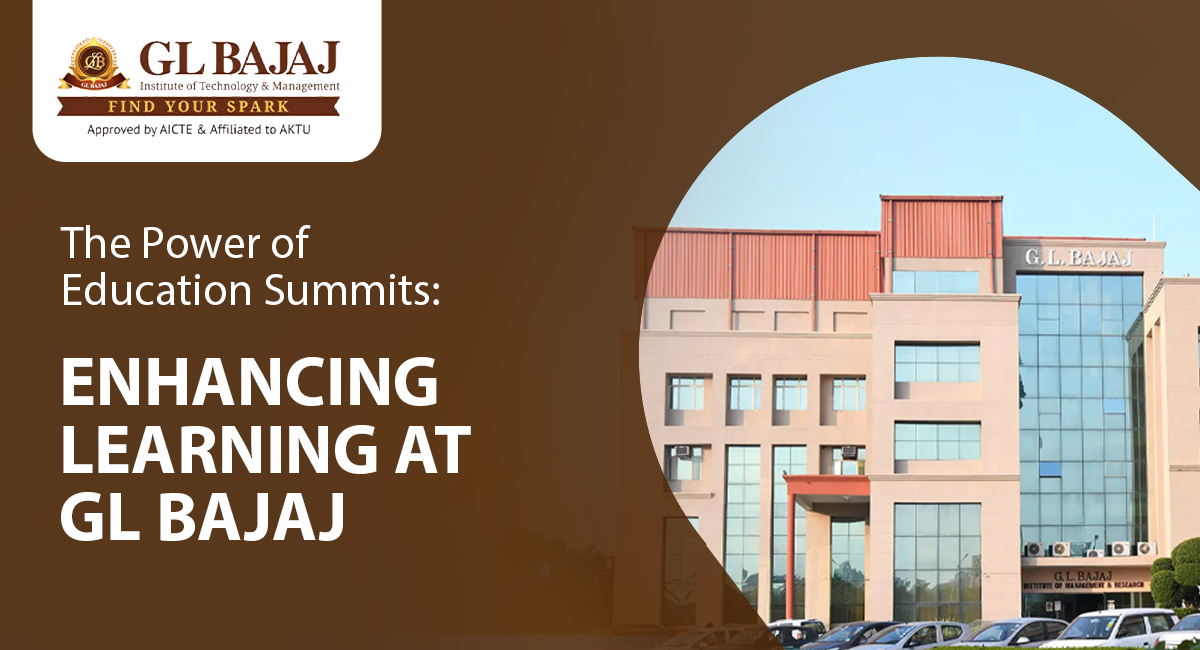Education is an evolving field and new perspectives keep coming up every day to address the various needs of students. Merging events like education summits into the curriculum is an important step towards building the gap between theoretical knowledge and practical application. The recent “Right to Excellence” Education Summit 2024, held at GL Bajaj Educational Institutions in collaboration with the Times of India, was a shining example of how such events can enrich the educational experience.
Education summits bring together thought leaders, industry experts, educators, and students to discuss, and disseminate knowledge on various topics. These summits offer a unique platform for sharing research, innovative practices, and emerging trends. The “Right to Excellence” Education Summit 2024 at GL Bajaj was no exception, which featured distinguished guests such as Bollywood actor Vikrant Massey, esteemed industrialist Shrikant Bolla, and numerous other eminent panelists.
To get a closer look at the summit, check out the key highlights in these videos:
One of the most significant advantages of combining education summits into the curriculum is the opportunity for students to gain real-world knowledge. At the summit, Vikrant Massey spoke passionately about the current state of education and its alignment with career opportunities. His words echoed with the students, highlighting the importance of staying informed and adaptable in a rapidly changing job market.
Shrikant Bolla shared his journey from overcoming visual impairment to founding Bollant Industries and inspiring many. His message was clear: hurdles are merely stepping stones to success. Such stories inspire students and instill a sense of determination and strength.
The summit also focused on closing the education-employment gap, a critical issue in today’s academic landscape. Mr. Awanish Awasthi, Ex-IAS and Advisor to the Uttar Pradesh CM, discussed the challenges interfering with inclusive and equitable education. He focused on the need for quality education that meets market demands, citing a significant increase in student enrollment in Uttar Pradesh as evidence of the state’s commitment to education.
Rishikesh Patankar, Vice President of Government Programs at NSDC, addressed the “skill gap” – the disparity between industry demands and the supply from educational institutions. He emphasized the focus on “future skills” necessary for the evolving workforce. This perspective is crucial for students as they prepare to enter industries that require specific competencies and adaptability.
Another highlight of the summit was the discussion on the digital transformation of education and the incorporation of AI into classroom learning. Nageshwar Rao, former VC of IGNOU, expressed the importance of integrating knowledge, skills, and values into higher education. This approach ensures that students become academically proficient and prepare themselves to tackle real-world challenges.
Divya Gandotra Tandon, Director of Scoop Beats Pvt Ltd & COO of ASTNT Technologies Pvt Ltd, addressed the excuses often made by students regarding the lack of practical learning in colleges. She said that with the vast amount of information available online, students have the tools to educate themselves beyond the classroom. Her thoughts highlighted the importance of self-directed learning and using technology for educational advancement.
Education summits provide a dynamic complement to traditional classroom learning. They offer students the chance to interact with leaders from various fields, getting firsthand knowledge and inspiration. For GL Bajaj, this event was instrumental in broadening the horizons of their students.
The recent “Right to Excellence” Education Summit 2024 demonstrated the immense value these events bring to the academic environment. By integrating such summits into the curriculum, educational institutions can create a more engaging and enriching learning experience.
Through these initiatives, GL Bajaj enriched the academic experience and empowered the students to become leaders, innovators, and change-makers in their respective fields.
